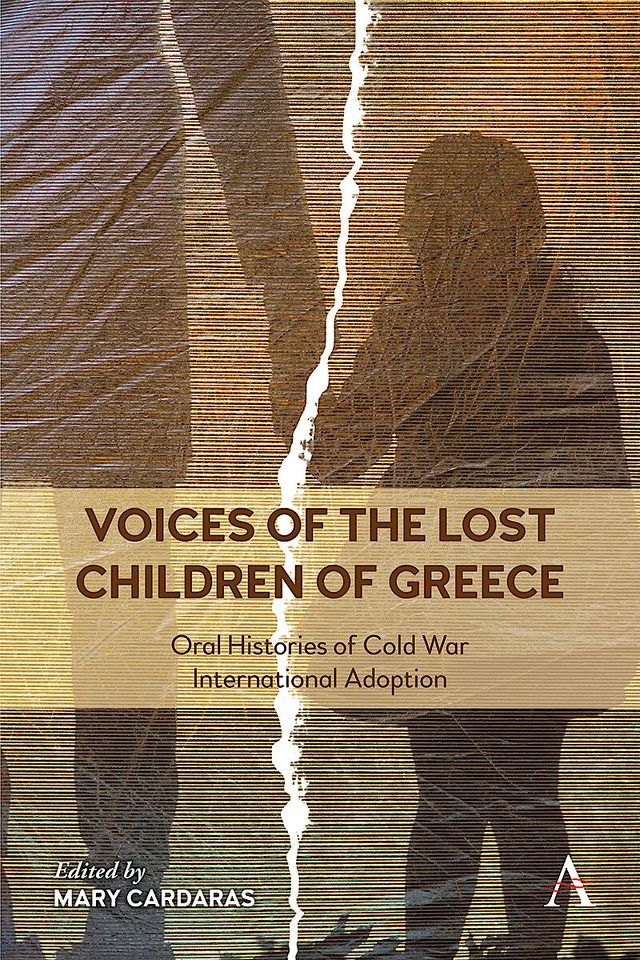Edited by Mary Cardaras
foreword by Andrew Mossin
introduction by Gonda Van Steen
ISBN: 9781839983702
Pages: 210
Pub Date: January 2023
Imprint: Anthem Press
Paperback
£25.00 / $35.00
Hardback
£80.00 / $110.00
eBook (WEB PDF)
£25.00 / $35.00
eBook (EPUB)
£25.00 / $40.00
During World War II and the Greek Civil War, there was a systemic movement to drain Greece of its infants, babies and children for adoption outside the country. It was a phenomenon further instigated by poverty, and dependence upon other powerful forces, both external and internal. “The total number of Greek war orphans (who had lost one or both parents) was estimated to be 340,000 to 375,000 and by 1950, one out of eight children was orphaned,” according to the Greek Ministry of Social Welfare. Greece had become “a nation of orphans,” and between 1948 through 1962, “had the highest annual per capita adoption ratio in the world.”
Some adoptions of that time were simple, legal adoptions and private. Others were expensive and complicated. Many were illegal and others had criminal overtones. A profit motive had been created to move babies and children from one place to another in the country and also far beyond Greek borders, internationally. But the issue was more importantly that of human rights. “Birth mothers and adoptive families were routinely deceived in this transnational scene of baby brokering, which left children without protection.” Documents were “concocted” in some cases and, in others, “forged. Some babies were stolen from their birth mothers. Some babies were “re-registered as foundlings and some parents were told their baby had died, but were not shown a body or a death certificate.” Further, “numerous mothers of children born out of wedlock were being denied any meaningful consent in the adoption proceedings.”
This book will reflect this time in Greek history through a collection of essays from these children, now adults, known as the “lost children of Greece.” Many of their stories were harrowing, some fantastic, and have affected and influenced the lives of these individuals for years. Their essays will reflect the times, but will also describe the feelings, experiences, and thoughts about being adopted in such turbulent times, and will chronicle the searches for their biological relatives, in most cases, after their adoptive parents have died. Much has been written about the history of these times, which briefly mentions or refers to the children, but little to none has come from the children themselves. That is this book.






